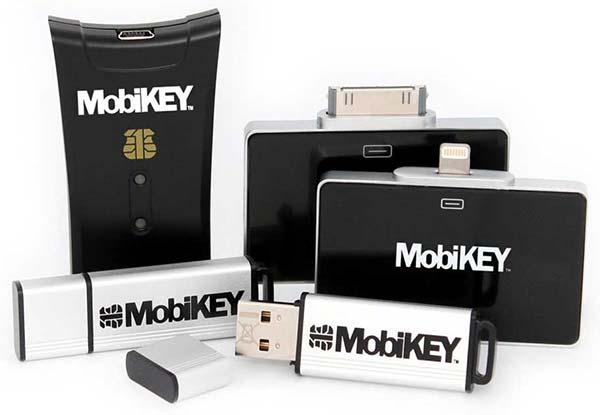First Community Bank
Effortless, 100% secure, scalable remote work access with MobiKEY
The Situation
When Karl Kemp added two employees to his First Community Bank IT team six years ago, he learned about a secure remote work solution that promised advantages over virtual private networking (VPN). Kemp was intrigued.
“I was not unhappy with VPNs at the time,” remembers Kemp, First Community’s Senior Vice President and Director of Information Technology, “other than being a bit aggravated at the difficulties of managing them. I was, however, concerned about the overall security of allowing a computer outside of my network, my control and my cleaning processes to have a direct tunnel into my network. There just didn’t seem to be a great alternative.”
The alternatives that Kemp had considered included Mobile VPN solutions with a certificate, hard VPN solutions or VPN services, which he ruled out immediately. “As a bank, we are cloud-averse,” he says. “I just don’t like giving someone else the keys to my back door. The same goes for GoToMeeting and GoToMyPC.” The other option that Kemp considered was IP-locked remote desktop protocols, which he finds painful to manage. He acknowledges that while firewalls can be bolstered to block most known threats, you can’t protect against a Zero Day event with a firewall…or a VPN.
The Situation
When Karl Kemp added two employees to his First Community Bank IT team six years ago, he learned about a secure remote work solution that promised advantages over virtual private networking (VPN). Kemp was intrigued.
“I was not unhappy with VPNs at the time,” remembers Kemp, First Community’s Senior Vice President and Director of Information Technology, “other than being a bit aggravated at the difficulties of managing them. I was, however, concerned about the overall security of allowing a computer outside of my network, my control and my cleaning processes to have a direct tunnel into my network. There just didn’t seem to be a great alternative.”
The alternatives that Kemp had considered included Mobile VPN solutions with a certificate, hard VPN solutions or VPN services, which he ruled out immediately. “As a bank, we are cloud-averse,” he says. “I just don’t like giving someone else the keys to my back door. The same goes for GoToMeeting and GoToMyPC.” The other option that Kemp considered was IP-locked remote desktop protocols, which he finds painful to manage. He acknowledges that while firewalls can be bolstered to block most known threats, you can’t protect against a Zero Day event with a firewall…or a VPN.

The Solution
The secure remote work solution that the new employees brought to Kemp’s attention was MobiKEY. He deployed several of the devices for the IT team, then rolled them out for the executive team. The MobiKEY technology was well received. The staff found it easy to use and effective when remoting into their PCs at the head office or at any of First Community’s 27 branches in Arkansas and Missouri. Both teams now carry MobiKEY devices at all times.
Kemp also valued the data loss-prevention aspect of the MobiKEY technology over VPNs. “It’s tough to lose something that hasn’t left the office,” he chuckles. “When all of your files stay at the bank, the greatest risk you face is limited to losing a personal or bank-issued device that—because of MobiKEY—contains no bank information. I like that scenario a whole lot better.”
First Community expanded its MobiKEY usage to include department managers, who previously came into bank branches after hours when work demanded it. Doing so incurred added risk, of course, which is now largely avoided by remoting in using MobiKEYs. “We also have people on leave, on maternity,” notes Kemp, “and some that work odd hours. MobiKEY solves all of that.”
Kemp has recently taken the ‘remote-in’ approach to its ultimate conclusion: employees who live elsewhere in the U.S. and almost never come in to the head office now remotely access virtualized machines, which he has found to be an elegant solution.
“I was not unhappy with VPNs at the time. I was concerned about the overall security of allowing a computer outside of my network, my control and my cleaning processes to have a direct tunnel into my network.”
Coping with COVID
When the Coronavirus pandemic hit, MobiKEY technology use at First Community exploded. Kemp rolled out MobiKEY MC3 devices for dozens of office staff and instituted a simple training protocol. For most staff, the IT team ran quick in-person training. “We had them plug their MobiKEY into a machine and log in. It was a 10-minute process. Everyone found it simple. In other locations, we reached staff by phone and my IT guys walked them through it. There were no real problems.”
At the peak of remote work, First Community had 80 staff logged in via MobiKEY at once. Kemp was initially concerned that coronavirus-related MobiKEY usage across the U.S. would overwhelm Route1 infrastructure, but he experienced no problems and no delay in service. While some employees in rural areas would occasionally experience a degree of sluggishness, this was simply a by-product of the quality of their Internet connections.
The main complaint his team fielded from employees centered on the inability to print documents – an optional security feature of the MobiKEY implementation that allows organizations to selectively disable remote printing to prevent data leakage or to ensure compliance with policies.
MobiKEY also offers the additional benefit of allowing employees to remote in to more than one computer. Kemp’s MobiKEY, for instance, lets him remote into several machines.

“You can’t protect against a Zero Day event with a firewall…or a VPN.
Not only did Kemp find MobiKEY easy to ramp up when the coronavirus hit, but it helped him avoid business interruptions and avoid burning man-hours implementing a VPN solution with adequate capacity. “VPN would have been a nightmare to set up,” he says. “We have people with Macs, different versions of Windows, some running on a USB WiFi connection…security drawbacks are one thing, but VPN setup is another entirely. There are so many variables out there that can break a VPN…getting that put together during COVID would have been an ordeal.”
MobiKEY will continue to be a mainstay of First Community’s IT strategy, as it offers staff a secure, hassle-free way to remotely access their desktops, laptops and virtual machines. Kemp sees MobiKEY as a permanent solution for retaining out-of-state employees without taking on extra risk.
Equally important is the mitigation of risk to the branches’ physical security through fewer instances of after-hours visits. Kemp realized that the easy access and confidence the MobiKEY solution provided his staff improved overall security for the bank. Cybersecurity was the main reason to get MobiKEY, but the ability to improve the safety of employees and reduce the liability to the bank was a welcome hidden benefit.
Kemp actively recommends MobiKEY to colleagues for ease of access, reliability of access, support, and data loss prevention. “I don’t know of anything better,” he observes. When asked why he thinks that MobiKEY is not more prevalent in the industry, Kemp is philosophical. “It’s just not a well-known solution,” he observes. “There’s an old saying in IT, ‘nobody ever got fired for recommending IBM’. That pretty much sums up the situation with MobiKEY: people are scared to take a chance on something unfamiliar and be wrong about it.”


Not only did Kemp find MobiKEY easy to ramp up when the coronavirus hit, but it helped him avoid business interruptions and avoid burning man-hours implementing a VPN solution with adequate capacity. “VPN would have been a nightmare to set up,” he says. “We have people with Macs, different versions of Windows, some running on a USB WiFi connection…security drawbacks are one thing, but VPN setup is another entirely. There are so many variables out there that can break a VPN…getting that put together during COVID would have been an ordeal.”
MobiKEY will continue to be a mainstay of First Community’s IT strategy, as it offers staff a secure, hassle-free way to remotely access their desktops, laptops and virtual machines. Kemp sees MobiKEY as a permanent solution for retaining out-of-state employees without taking on extra risk.
Equally important is the mitigation of risk to the branches’ physical security through fewer instances of after-hours visits. Kemp realized that the easy access and confidence the MobiKEY solution provided his staff improved overall security for the bank. Cybersecurity was the main reason to get MobiKEY, but the ability to improve the safety of employees and reduce the liability to the bank was a welcome hidden benefit.
Kemp actively recommends MobiKEY to colleagues for ease of access, reliability of access, support, and data loss prevention. “I don’t know of anything better,” he observes. When asked why he thinks that MobiKEY is not more prevalent in the industry, Kemp is philosophical. “It’s just not a well-known solution,” he observes. “There’s an old saying in IT, ‘nobody ever got fired for recommending IBM’. That pretty much sums up the situation with MobiKEY: people are scared to take a chance on something unfamiliar and be wrong about it.”